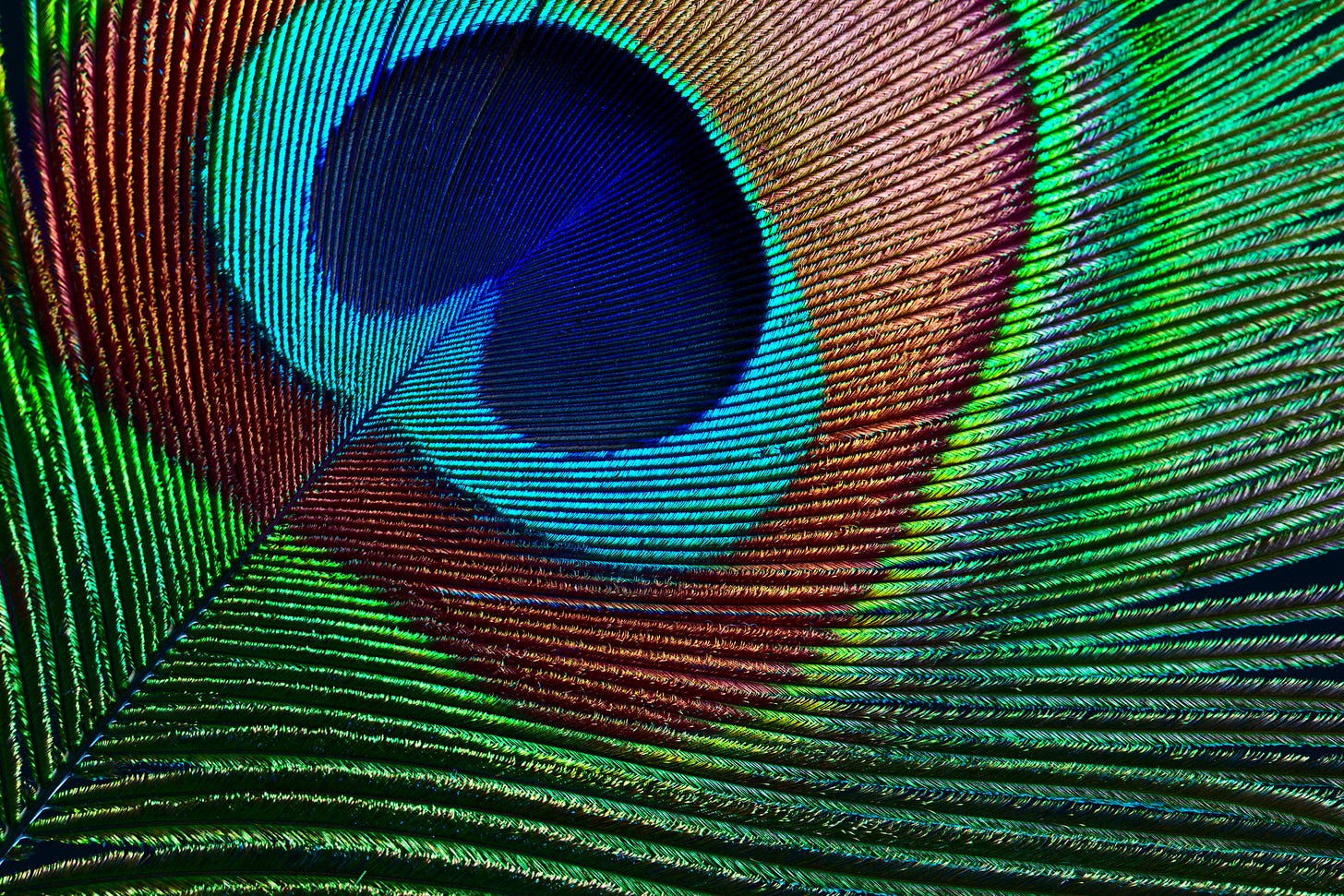Most people don’t know at all how beautiful the world is
Rainer Rilke's love letter to the small things
On this day in 1901, Austrian poet Rainer Maria Rilke sent the following letterand poemto Helmuth Westhoff, a German painter brother of Clara Westhoff, a who had recently married Rilke.
November 12, 1901
You wrote me a very fine letter and thought of me so kindly, although I still hadn’t sent you the poem about the “Peacock feather” I promised you long ago…
I composed this little poem several years ago in the city of Munich where in October there is something like your free market. And while the other people went about laughing and teasing each other and trying to touch and tickle each other with the long peacock feathers, I went about alone with my peacock feather which was much too proud to tickle anybody, and the longer I carried it about with me thus, the more the slenderness of its form engaged me, and the beauty of its head from which the “peacock eye” looked out at me dark and mysterious. It was as though I were seeing such a feather for the very first time, and it seemed to me to hold a whole wealth of beauties that no one was noticing but I. And out of this feeling came the little poem that I dedicated at that time to a dear friend, a painter, who I knew loved peacock feathers too. You can imagine what a peacock feather means to a painter, who has a different, far more intimate relationship with colors than we have, how much he can learn from it and how much the harmony in the variety, and the multitude of colors all together there on such a little spot, can give him.
But do you know what the principal thing was for me, dear Helmuth: that I saw once again that most people hold things in their hands to do something stupid with them, instead of looking carefully at each thing and asking each about the beauty it possesses. So it comes to pass that most people don’t know at all how beautiful the world is and how much splendor is revealed in the smallest things, in some flower, a stone, the bark of a tree, or a birch leaf. Grown-up people, who have business and cares and worry about a lot of trifles, gradually lose their eye entirely for these riches which children, when they are alert, soon notice and love with all their hearts. And yet the finest thing would be if all people would always stay in this relationship like those children, with simple and reverent feelings, and if they would not lose the power to rejoice as deeply in a birch leaf or in the feather of a peacock or the pinion of a hooded crow as in a great mountain range or a splendid palace.
The small is as little small as the big is big. There is a great and eternal beauty throughout the world, and it is scattered justly over the small things and the big; for in the important and essential there is no injustice on the whole earth.
This, dear Helmuth, all hangs together somewhat with the poem of the peacock feather in which I could only express badly what I meant. I was still very young then. But now I know it better every year and can tell people better all the time that there is a great deal of beauty in the world—almost nothing but beauty.
Clara sends you many affectionate greetings, but above all, dear Helmuth, greetings, and thanks from
Your faithful
RainerPeacock feather
Matchless in your delicacy,
how I loved you even as a child.
I held you for a lovetoken
which by silver-silent pools
elves in cool night hand each other
when children all are sleeping.And because good little Granny
often read to me of wishing-wands,
so it was I dreamt: frail spirit,
in your delicate fibers flows
the cunning power of the enchanted rod—
and sought you in the summer grass.
Excerpted from Letters of Rainer Maria Rilke, 1892-1910 by Rainer Maria Rilke. Published by W. W. Norton & Company in 1969.
Photo from Getty.




Wonderful post. Love this & arrived as I’m outside noticing how beautiful dried shriveled leaves on pokeberry look with sunlight showing transparency.
Having lived in a van--and, thus, woken often in the wild somewhere--for much of the last four years, I’ve often meditated on how exactly to put to words why waking in these quiet spaces awakens in me an incrementally growing sense of calm. “There is a great eternal beauty throughout the world, and it is scattered justly over the small things and the big; for in the important and essential there is no injustice in the whole earth.” When I read this line, it struck me that it might speak to the way living alone in the wild spaces works in me. How often I can’t help but be enthralled by the wonder of things like a tent-worm tent bejeweled by dew or a horned lizard who often flattens itself beneath the flat rock I sometimes use as a plate or a flame-colored, long-legged wasp who meanders through my campsite every morning.